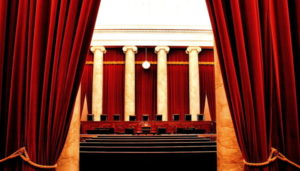Oh, boy … I just hate watching spectacles like the one I watched unfold today in a US Senate Judiciary Committee hearing.
However, given the loathsome attitude that permeates the nation’s capital, it’s not surprising and it isn’t likely to be nearly the last such demonstration.
Committee Democrats stormed out of the hearing today because the Republican leadership on the panel wouldn’t allow further debate on a truly horrible appointment to the 3rd U.S. District Court of Appeals. Donald Trump has selected his former personal counsel, Emil Bove, to a lifetime post on the federal bench. Committee Democrats wanted to debate Bove’s appointment further. GOP Chairman Charles Grassley of Iowa said “no.” He ordered that the appointment proceed to a committee vote.
Democratic Sen. Cory Booker of New Jersey pleaded with Grassley, who he praised as a man of decency and character, to grant the extra time for debate. Grassley was having none of it. Booker wanted to know what kind of control Trump had used to coerce Grassley into denying the debate.
Bove is a patently preposterous choice to become a federal judge. This is the guy who once said it was OK to tell a court to “fu** you” while disobeying a court order. He represented Trump in his case against the woman who won a court judgment that held Trump liable for sexual abuse. He also has said it might be possible for Trump to seek a third term as president, even though the Constitution limits presidents to two elected terms. Roll that around a while … eh?
Never in my entire life have I seen relationships between the legislative and executive branches of government degenerate to the level where it sits today. I have implored all the parties concerned to seek common ground. They need to return to an era where political rivals can disagree on policy but retain a certain level of personal decorum.
It’s all shattered. I fear it is gone forever.



